Board of Directors
Herschel Hardin, President
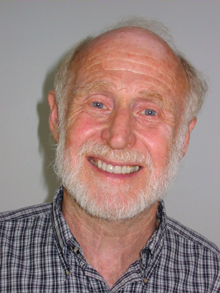
Herschel is a long-time advocate for those with a serious mental illness and their families. He has a son with schizophrenia. He was active in the North Shore Schizophrenia Society (NSSS), now the Pathways Serious Mental Illness Society, for a couple of decades, 1993-2014, in a variety of roles including Family-to-Family (education course) teacher and provincial coordinator, Fundraising Team co-chair, president, advocacy coordinator and editor of the NSSS Advocacy Bulletin, acting executive director, and community outreach presenter. He also filled in at NSSS, when needed, as a one-on-one peer family crisis counsellor. He worked closely in the society with his wife, Marguerite Hardin, who founded its Family Support Centre and was its longtime support coordinator. He is the author of a bellwhether article on involuntary admission, “Uncivil Liberties,” an op-ed piece written for the Vancouver Sun in 1993, and other articles on issues involving mental illness and the B.C. Mental Health Act. In his “civilian life,” as he calls it, Herschel has been an author, playwright, radio broadcaster, and newspaper columnist, among other things in the past.
Ric Matthews, Vice-President
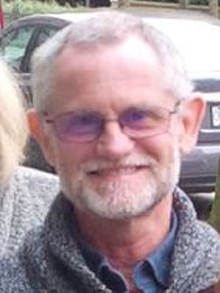
Ric is an executive management professional with over 20 years experience in for-profit and not-for-profit organisations, including a long stint in the Downtown Eastside. He has led organizational development initiatives in Canada, the USA, South America, Eastern Europe, Asia, Australia, Thailand and Africa. As an ordained minister in the Methodist Church of Southern Africa, he worked with Desmond Tutu on a number of joint projects. From 2007 to 2013 he worked in Vancouver’s Downtown Eastside as Executive Minister at First United Church Mission, involving. among other things, front-line experience with many seriously mentally ill. He also served in that period as Executive Director at New Way Community Society. During 2013 and 2014 Ric served as the Director Regional Operations for the Vancouver Island and Vancouver Coastal Region of Community Living BC. Ric also has extensive experience in inter-group trust building and invented a board game called Know Me (widely used across the world to enable conflict resolution and relationship-building). Ric is deeply committed to social and ecological justice with a passion for helping individuals, organizations and communities to achieve their full potential.
Anne Swenerton, Secretary

Anne Swenerton has a close relative with schizophrenia. She and her family were drawn to the Riverview Village proposal by their 20-plus years of experience caring for their loved one. At first, the cyclical nature of psychosis coupled with the revolving door of psychiatric acute care presented the biggest challenges. Over time, however, the negative symptoms – anosognosia (lack of insight), low motivation, preference for isolation – had a greater impact on their loved one’s health and cognitive function. Support from immediate family and a mental health team has been essential but insufficient given an overburdened healthcare system and parents’ aging or passing away. The Riverview Village proposal, Anne explains, brings hope of a better solution, a “sweet spot” between the detrimental effects of a lonely apartment, on the one hand, and the archaic model of institutional care on the other – a stable and caring environment and an interactive and safe community for those with serious mental illness.
Halina Haboosheh, Treasurer
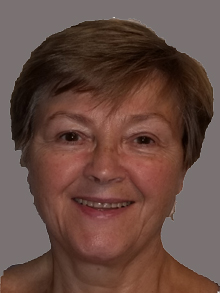
Halina is a semi-retired chemist and businesswoman. Her brother, who had schizophrenia but wasn’t treated although psychotic, committed suicide; Halina and her lawyer between them had made 16 different documented attempts to get help for him without success – help, in this case, meaning involuntary admission. The circumstances of the case generated considerable media publicity and resulted in an independent inquiry by Vancouver Coastal Health. Halina has gone on to become a veteran teacher of Family-to-Family, an education course for family members with a mentally ill relative. She currently works part-time as a front-desk person at the North Shore Neighbourhood House.
Keith Johnston

Keith is a retired litigation lawyer who formerly worked for the B.C. provincial government. When his son, undiagnosed, began running into difficulties, Keith took the Family-to-Family education course, familiarizing himself in particular with serious mental illness and with the experience of what it was like to fall mentally ill and begin the long process of getting back on one’s feet. He also has seen problems of addiction first hand. Among his many other contributions, he brings to the board analytic and editing skills, beginning with work on the very original draft of the RVICS proposal and continuing on with subsequent documents.
Sean Flynn

Sean was born in Montreal and raised in New Westminster. He studied medicine at the University of Calgary. After working as a family doctor for several years, he did a residency in psychiatry at UBC. He continued his studies with research into the biology of severe and persistent mental illness. He worked for sixteen years helping patients at Riverview Hospital, mostly in the Refractory Ward. He’s now with an Assertive Community Treatment (ACT) team working primarily in the Downtown Eastside and with West End Community Mental Health. He is intimately aware of the challenges facing those with serious mental illness, their families, the people who struggle to serve those who suffer, and the system that attempts to treat those with an illness.
Sarah Andrusco

Sarah’s personal experience struggling with major depression has given her a profound understanding of what serious mental illness is like. Her experience has led her to become a peer support worker, helping and supporting others with mental illness – work covering a range of mental disorders.and which, in its helping function, she finds particularly rewarding For the last decade she’s been an independent jewellery stylist and, currently, also organizes concert events for her pianist father, Billy Andrusco. She’s an active member of her church, responsible for its website and involved in its children’s ministry. “The RVICS integrated community concept makes so much sense,” she says. “People who may not thrive independently can thrive in an intentional community. It gives them an opportunity to live a fuller life. The intentional community is a way of upholding and supporting people.”
Cheryl Archer
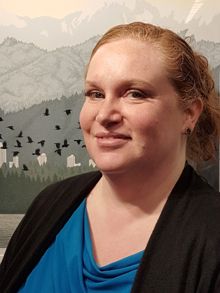
Cheryl is a former executive director of the North Shore Schizophrenia Society where she covered the gamut from management of a growing organization to advocacy, outreach, community relations, research, editorial, and volunteer coordination. Working with family members of those with a severe mental illness, she became intimately familiar with the challenges faced by the mentally ill and their families and with policy issues in the field. Issues included family involvement, the need for a pro-active approach to treatment, sharing information with family members, and prioritizing the treatment and care of those most seriously affected. Cheryl works in municipal government.
Shaun Stewart
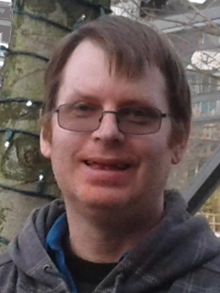
Shaun was diagnosed with schizoaffective disorder in 2001. From 2005 to 2014 he worked at Capilano University as their disability liaison officer (an elected position), where he coordinated the needs and services of people with disabilities and organized events and campaigns on many issues affecting the student community. He also worked on a petition to increase disability allowances. He has made first-person presentations to high-school students, the North Vancouver RCMP, the West Vancouver Police Department, and elsewhere, on what it’s like to have the illness and how to support others with mental-health conditions. He also worked for a couple of years as a peer support worker, a position which had to be given up because of a life-changing heel injury which impeded his mobility. He now, however, gets around again with the aid of an electric scooter. He has a particular interest in the provision of adequate housing – housing with proper space – for those with mental illness, for which the Riverview Lands, with its legacy of helping the mentally ill, provide a special opportunity.
Janet Blue
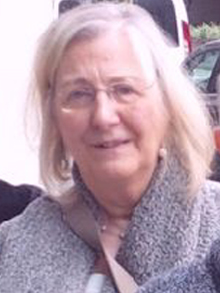
Janet is a retired elementary school teacher with a varied background. For the last decade of her career, she was a “resource teacher,” working with groups of pupils struggling with special challenges, such as learning disabilities and ESL. She was also seconded to work one-on-one with teachers around the province having difficulties with their teaching, where she provided support, evaluation and individualized programs to help them through their problems. She was also a union rep for the Vancouver Elementary School Teachers’ Association. In her late thirties, after several years of difficulty, she was hospitalized for a month with what was diagnosed as bipolar disorder and has been on medication, mostly lithium, ever since. It helped her subsequently to understand the struggles of her son, who is also bipolar – an involvement, in helping him, that brought her into contact with peer family support (she ultimately did some family support work herself) and gave her a detailed knowledge of serious mental illness gene.
